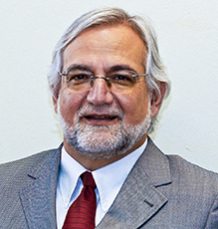
Mario Saad, a diabetes researcher who once sued to stop a publisher from retracting his papers, has just received his eighth retraction.
Critical Care has retracted a 2012 paper about treating sepsis, citing extensive similarities between figures within the paper and 10 others.
Here’s the full notice for “Diacerhein attenuates the inflammatory response and improves survival in a model of severe sepsis:”
The authors would like to retract this article [1] because it was brought to the Editors’ attention that some figures appear to be similar to those within the article and in previous publications [2, 3, 4, 5, 6, 7, 8, 9, 10, 11]. The similarity between the figures within this article and previous publications, are specified below. An investigation by The University of Campinas (UNICAMP) in São Paulo, Brazil concluded that there was no evidence of research misconduct. The authors maintain that the similarities do not affect the interpretation or conclusions of their study. The authors accept that the preparation of the figures fell below the standard of publication. They will seek to publish the results in a new manuscript version, with new experiments and figures, corroborating the findings of this work. Author, Jose Carvalheira agreed to the retraction and did not disagree with the wording of the retraction.
The notice then lists more than 30 sections of figures that were lifted from other places.
The 2012 paper has been cited five times, according to Thomson Reuters Web of Science — and has been subject to much discussion on PubPeer.
A spokesperson for BioMed Central, which publishes the journal, told us that all authors agreed to the retraction, not just the one mentioned in the notice (Carvalheira):
As noted from the retraction notice the authors would like to retract the article and the authors accept that the preparation of the figures fell below the standard of publication.
There’s a bit to add about the list of references the newly retracted paper lifted from. All but two include Saad among the co-author list, and several have been retracted.
One, which shares the same first author (Kelly Calisto) was retracted earlier this year by PLOS ONE; two others were retracted in March by Diabetes, despite Saad’s attempts to halt the process by suing the publisher, the American Diabetes Association.
Another listed reference co-authored by Saad has received an expression of concern (EOC), citing concerns about reuse of images.
The two papers that don’t share any authors with the newly retracted papers have both been flagged by EOCs by the Journal of Physiology, after an investigation “could not rule out the possibility” that they contained duplicated Western blots. Even though Saad isn’t a co-author, he plays a role: The papers include blots duplicated from other papers of Saad’s.
We’ve reached out to Saad for comment.
Like Retraction Watch? Consider making a tax-deductible contribution to support our growth. You can also follow us on Twitter, like us on Facebook, add us to your RSS reader, sign up on our homepage for an email every time there’s a new post, or subscribe to our daily digest. Click here to review our Comments Policy. For a sneak peek at what we’re working on, click here.
A brief Google search on this first author has an interesting recent entry:
http://www.bv.fapesp.br/en/bolsas/166035/a-role-for-igfbp3-in-the-pathogensesis-of-diabetic-enteropathy/
Apparently he is now allocated at Paolo Fiorina’s lab (Harvard) with a post-doc position. Yet that according to NCBI all the listed publications by this author were retracted:
https://www.ncbi.nlm.nih.gov/pubmed/?term=calisto+kl
This is a very welcome development. For those interested in “The Case of the Wandering Western”, here’s the file that was sent to Crit Care, detailing the re-used blot in 15 separate figures spread across 10 papers… http://www.psblab.org/wp-content/uploads/2016/09/The-blot-that-keeps-on-giving-for-Crit-Care.ppt
Another example was found just today, and will be added to the document when I have time. Leo Schneider also has a nice write up of this whole thing… https://forbetterscience.wordpress.com/2016/06/21/mario-saad-and-the-return-of-the-wandering-western-blot/